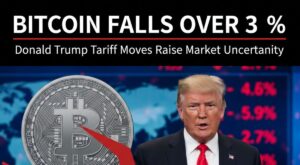Blockchain Technology Makes Sure Compliance with Halal
Blockchain technology is being used more and more by Vietnamese companies to increase their market share in the halal sector and guarantee compliance with Muslim dietary regulations. According to Tuoitre News, this calculated action improves halal certification’s transparency and credibility.
Supply chains that are secure and transparent
Through the creation of tamper-proof records across the supply chain, blockchain technology makes it possible to store halal certification data securely. Businesses may reduce fraud and labelling inconsistencies by putting this creative concept into practice, making it easier to identify halal items in international marketplaces.
Growing Prospects in MENA
The market for halal consumer goods is predicted to grow to $5.9 trillion by 2025, indicating the enormous potential of the Middle East and North Africa (MENA) region. Vietnam has recognised this opportunity and wants to successfully penetrate the halal market in order to increase agricultural exports by more than 50%.
Government Assistance for the Growth of Halal
The Politburo is establishing advantageous conditions for Vietnamese businesses to produce and distribute halal in order to support this expansion. Vietnam aims to address the growing demand for halal products while negotiating the disparate halal regulations across different countries by utilising its agricultural capabilities.
Prospects for the Future in a Developing Market
Vietnam is putting itself in a position to benefit from the 600 million people expected to live in the MENA region by 2030. Vietnamese companies are increasing consumer confidence, guaranteeing product authenticity, and solidifying their position in the international halal market by incorporating blockchain technology into halal certification procedures.




























